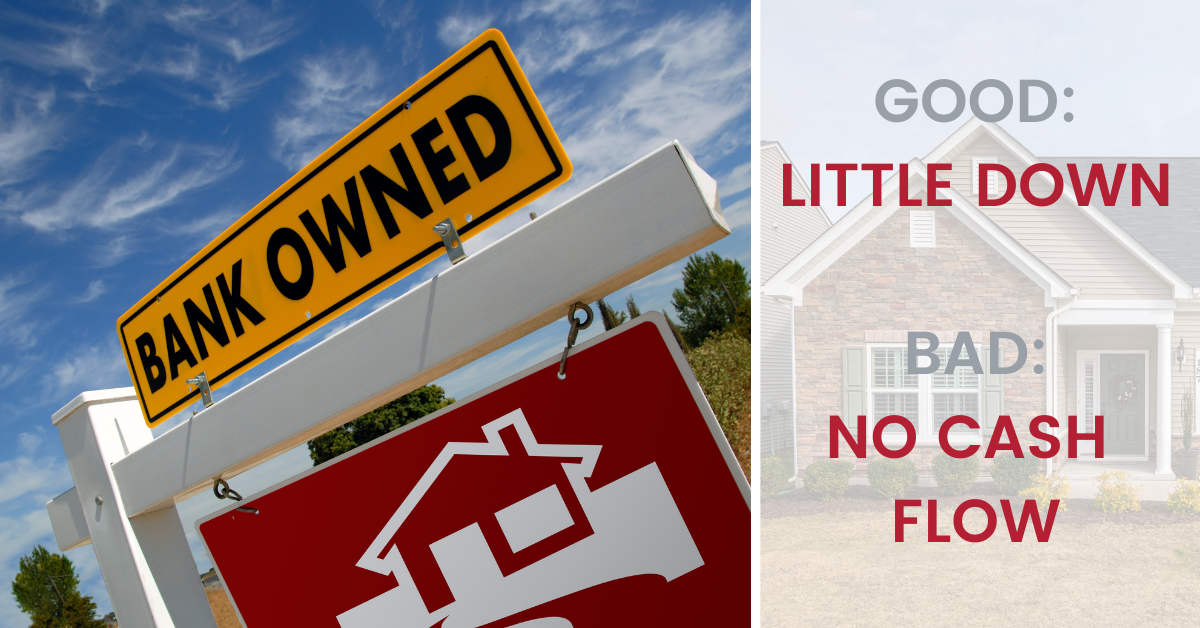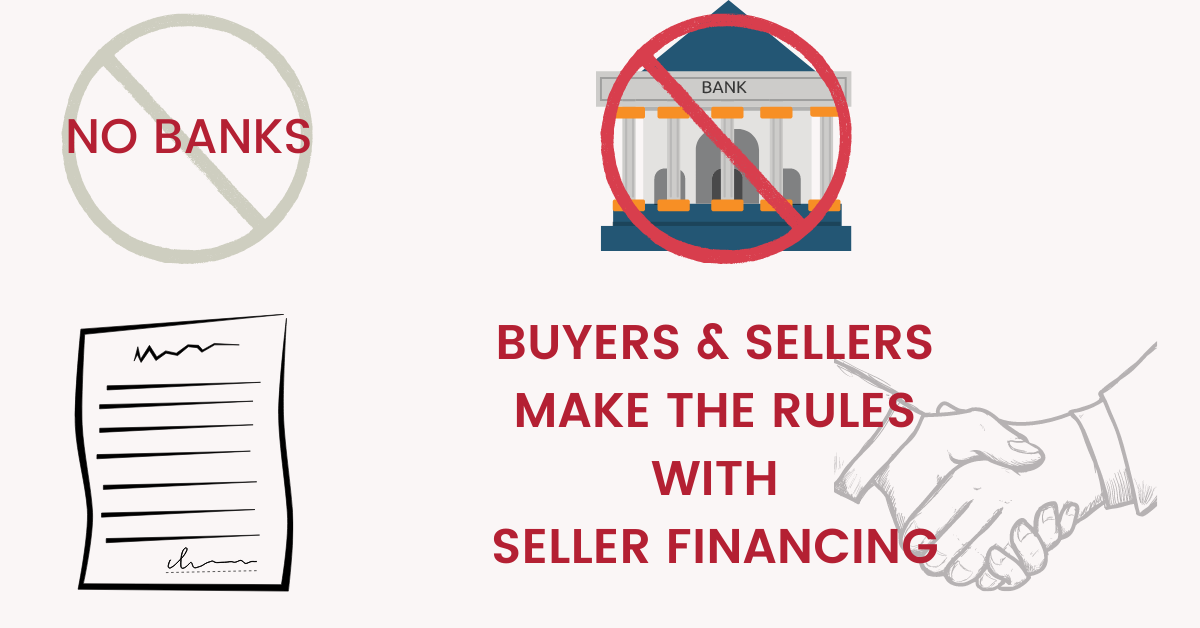Cash Flow "Don't" Happen Automatically
Waiting for cash flow to happen is a losing strategy. You may die before it happens. Let me show you how to CREATE CASH FLOW!
Starting out – I had very little money to invest! Like most of my friends, I had a steady job, a family to feed, bills to pay and when the end of the month came around – there was never enough money left over to buy real estate.

Of course, down payment money was only part of my problem. Many investors I knew bought rental houses that didn’t pay them any money even when they were fully rented! Obviously, when they’re vacant and need repairs, these investors must pay all the bills from their pocket – most often their credit cards. I wasn’t the brightest student in my math class, but I figured out early on, this is a good way to go broke! It’s definitely not the right recipe for building a better financial life and a secure future.
.png)
In my book; INVESTING IN GOLD MINE HOUSES, you’ll read about various examples of properties that pay me every month to own them! It’s a lot easier jumping outta bed in the morning when your properties produce cash flow and keep adding dollars to your bank account. When you manage houses and the tenants for negative cash flow, jumping off a bridge sounds a lot more enticing! I spent my early years investing both ways and I can tell you – cash flow is much better. The problem is, cash flow don’t happen automatically. You must build a foundation for cash flow by acquiring the right kind of properties that will provide it. About 95% of all real estate for sale won’t do it, but you needn’t worry – the 05% that’s left is more than enough to make you the next millionaire in your town.
During my first few years investing, I learned how to purchase rundown “take-back” houses from the bank, foreclosed houses called REO’s (real estate owned) for very little money down. I kept working at my telephone job and fixed up my houses evenings and weekends. After completing each fix-up project, I would rent the place out! All along it was my personal dream that one day my houses would earn enough money to support me and allow me to become my own boss! Buying REO houses for hardly any money down was easy enough, but it was causing me another problem!

The mortgage payments were so high it took nearly all my rental income to pay them. When I had a couple vacancies at the same time, I’d have to pony up money from my telephone paycheck to stay afloat. I remember calling my early mentor – Mr. Bill Nickerson for his advice!
"Go back and re-read my book", Bill said! Then he told me he had started out with single family houses too and had experienced the very same problem. Houses with 90-95% mortgages do not provide much cash flow until the mortgage debt is paid off. Mr. Nickerson told me his plan was to trade up into bigger properties (more units) using the equity from his fixed up house or duplex for the down payment. This was exactly the advice I needed to hear! I re-read his book as he suggested, but it was quite clear to me after our telephone conversation that multiple units would generate more income and more income was exactly what I needed.
.png)
One other thing Nickerson reminded me about was the money saving advantage of buying properties from owners who had allowed their property to run down and become unattractive. You’ll have a lot less competition, he said.
For example, let’s say you purchase an ugly rundown six (6) unit property with rents $200 below current market rates. Your fix-up job should allow you to gradually increase rents to current market rates. When you do, you’ll have $1200 more cash flow than when you started. Real estate investing is about the numbers, percentages and ratios. How much do you pay out, versus how much do you take in and get to keep?
.png)
I soon learned that smaller affordable rental units have a much higher profit markup than large “pride of ownership” units. They’re less expensive to purchase and fix up – plus, the majority of renters can afford to rent them.
It wasn’t long after I began to acquire and fix up multiple unit properties that I was able to quit my telephone job and live off my rental income. Mr. Nickerson’s advice saved my bacon. Having a skilled mentor has paid off in spades. I discovered that buying small groups of rundown houses, duplexes and apartments was just as easy as buying one house at a time. As far as the cash down payments for these kind of properties, I found they seldom cost any more than buying a single house. Sometimes even less because fewer buyers are interested in buying rundown, junky-looking properties. I can tell you from experience, fixing up rundown houses is a whole lot easier than fixin’ a cash flow shortage. As a bonus, you’ll sleep a lot better at night!
Perhaps the granddaddy of all bonuses when you acquire multiple units or groups of houses like I suggest! Nine outta ten times you’ll be able to negotiate seller financing for a good portion of the sale amount.

Banks will seldom finance rundown-lookin’ properties over four (4) units in size. Seller financing is the kind that’s always flexible because it’s negotiated between the buyer and seller. How flexible, you ask? Read or re-read BLOG NO. 4; “FINANCING IS THE KEY TO REAL ESTATE WEALTH”.
Sellers who own multiple unit properties with five units or more, are pretty much aware of the bank’s mortgage position when it comes time for them to sell. If they’re not knowledgeable to begin with, they soon will be. Ring-savvy owners pretty much expect they’ll be asked to carry paper or finance a large part of their equity. Sometimes partial loans (mortgages) are available from mortgage brokers or thrift lenders, but they’re more expensive when the property is rundown and doesn’t show well – when the buildings are older, they’ll almost always refuse to loan.
Seller financing is negotiated by the principals, the buyer and the seller – not the bank. This is where creativity comes into play.

You don’t need an amortization chart or calculator. Principals can talk dollars and cents. For example, many properties I’ve acquired have less income than they should have because of their condition and poor management. These properties are rundown and have undesirable tenants. My basic strategy is to pay a reasonable price (more than most buyers) in return for lower monthly mortgage payments. My rule of thumb for the total mortgage payment is somewhere around 50% of the property’s current income. Not what is could be – what it is now! What it could be is my profit because I have the skills to make it happen. Most sellers are not very responsive to lowball or fire sale offers. My strategy is to offer sellers a reasonable price in exchange for monthly mortgage payments that will work with the property’s income. For example, if the income is $3000 per month, my goal is to negotiate a monthly mortgage payment somewhere around $1500. I’ll even pay a little more for a property to get the mortgage payment I want. To me, mortgage payments are far more important than price (within reason, of course).
Over the years I’ve developed my own style of negotiating with sellers based on my experience and personality. In my book; START SMALL, PROFIT BIG IN REAL ESTATE, I explain the details....
.png)
however; what I’ve found to be most important is learning everything I can about the seller! For example, is he broke and needs money immediately? Is the seller elderly and can no longer physically operate the property? Are the tenants driving the seller nuts or perhaps he or she is facing bankruptcy? Does he live out of the area and must depend on some crappy manager? Knowing the seller’s situation and urgency gives me a distinct advantage negotiating, as well as writing my offer. Many “run of the mill” real estate books I’ve read say you should always ask the seller the reason he’s selling. These copy-cat authors may not know this but most sellers will make up some wild goose story (basically they’ll fib).

Others will politely tell you it’s none of your business or “kiss off”. Naturally, they’ll smile ‘cause they don’t want to lose you as a potential buyer. Friends, it’s your job to learn about the seller yourself! If you’re with me here – say Hallelujah!
